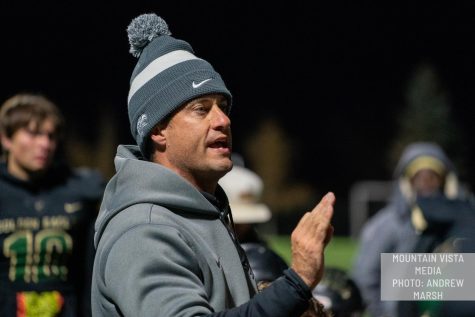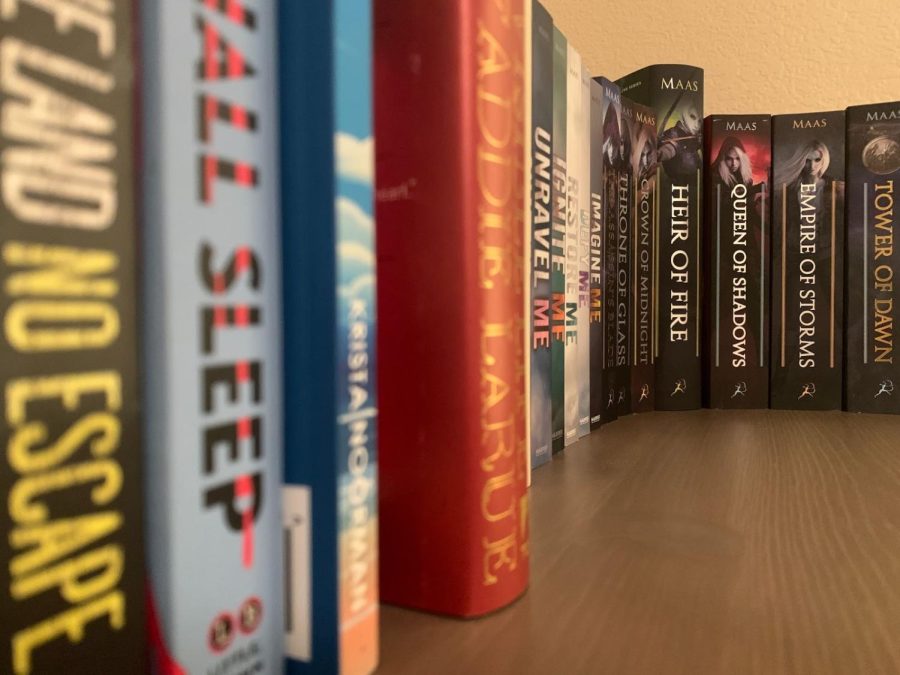KATIE PICKRELL
If there is one thing missing in today’s world, I know exactly what it is: compassion.
Unfortunately, this isn’t an easy thing to fix-it isn’t even easy to define. Most people would compare compassion to sympathy or maybe even empathy (though empathy is something that would be more difficult for people in the community of Highlands Ranch to feel when hearing of mass killings or starving children).
But, if you ask me, neither of those two words can come anywhere close to defining the compassion the world is in dire need of. Compassion is not simply feeling sorry for the people we hear of on the news. I’m sure that every middle class American would agree that they feel bad for those less fortunate than them, but what do they ever do about it?
Instead of deciding that we are going to go out and help the world after hearing of war and famine and poverty, we decide to return to our personal lives. Nothing we hear on the news seems to affect how we sleep at night; quite frankly, nothing we hear affects us at all.
That is where compassion should intervene. Compassion is acting on the feelings of sympathy that we possess. If everybody acted on what they felt, the world would be an immensely better place for humankind.
Perhaps, if we incorporated a larger amount of compassion into our foreign policy, instead of invading sovereign nations and killing civilian casualties, we could feed the starving.
This obviously seems like a completely unrealistic task. To solve world hunger, the Borgen Project predicts it would cost 30 billion dollars. And no doubt, that is a lot of money.
But consider this: according to sources such as “The Washington Post,” the cost of the wars we, as in the United States, have been fighting only in Iraq and Afghanistan have now amounted to at least four trillion dollars.
When you do the math, it comes to light that we have had the capability of solving world hunger over one hundred and thirty times by now. Even more shocking is the fact that the United States’ military spending in 2012 would have accounted for the needed 30 billion in less than eight days.
The four trillion dollars expense is not finalized either. Global Research estimates that an end cost to US involvement in Iraq and Afghanistan will actually come in at six trillion dollars. Considering how we spend our money, it’s not too big of a difference.
Another thing to consider, aside from the monetary cost, is the cost of lives. In Iraq, 4,500 American soldiers died. On top of that, though it is extremely unclear the exact number, “The Huffington Post” has said that anywhere from one hundred thousand to a half of a million Iraqis died.
Each year, children alone account for two and a half million deaths due to hunger. So while we have indirectly killed up to a half of a million people, we could’ve saved five times that amount.
Despite this, I am not trying to say that America should abandon all military action and recluse into our borders while trying to solve external conflict from back home. All that I’m saying is that a lot of the action that is being taken is doing more harm than good.
Although at this point I have clearly spoken of only one issue, it is only a single instance of many in which compassion has been completely avoided in light of the politics backing a situation.
Even back here in the United States, the problems with humanity are endless. We have a newly militarized police force committing ‘justifiable homicide’ against unarmed civilians. We have a border filled with children from countries plagued with poverty and violence that we won’t allow in. We have an increasing gap of income between the rich and the poor. We have millions of people sleeping on the streets because they lack a place to call home even though there are enough empty houses for everyone in the US to live in.
On top of all this, we have a lack of perspective and a tendency to pass judgement before thoroughly thinking through an entire situation.
The focus on all of these issues is too often short lived. For example, earlier last month an unarmed, African-american teenager Michael Brown was shot by police. By now everyone has already heard of it. What most people haven’t heard is that only weeks before another unarmed, African-american male John Crawford III was shot in the middle of an Ohio Walmart holding a toy gun.
The news has been so consumed on one man- and the outrage his death has caused- that everything else just fell into the background.
While millions of people are dying, we are ultimately ignoring their demise. We go on, shifting our focus from one thing to the next: from Brown to ISIS to Gaza to whatever else the news puts on for us.
We pay attention to these instances without noticing that the issues at hand have been around for longer than most of us and are not going to dissipate any time soon.
We have such an appreciation for individual situations that we fail to see the persisting problem: the fact that we, as a society, have lost compassion for each other behind a smokescreen of sympathy.


















